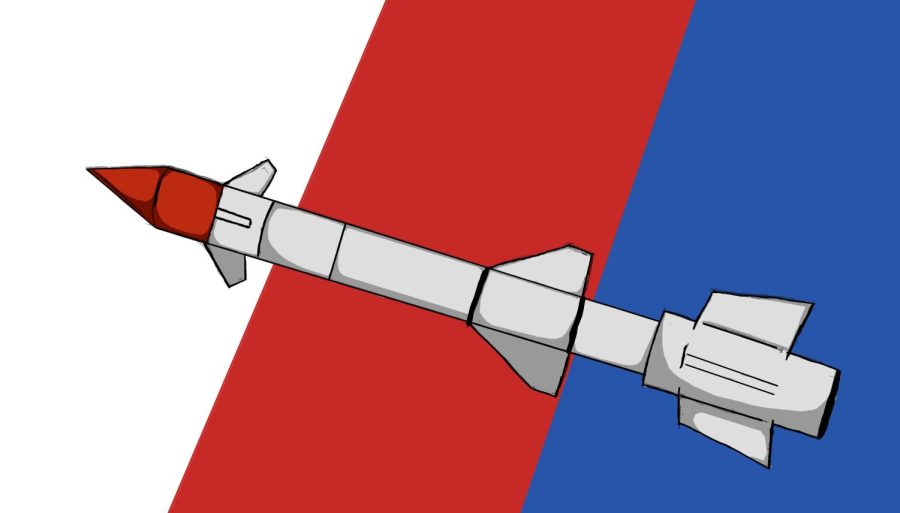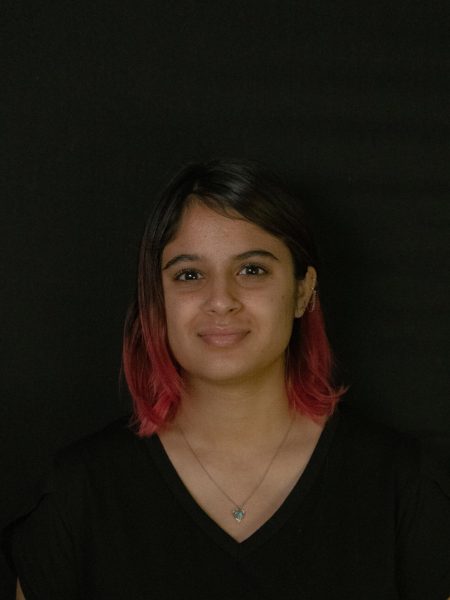War crimes lack global scrutiny
April 18, 2023
In the past week, Russia has been facing new accusations of war crimes committed in the invasion of Ukraine after two videos surfaced online of Russian soldiers beheading Ukrainian prisoners of war. The videos have drawn international condemnation, with the European Union and United Nations denouncing the footage.
The first video emerged and was propagated on Russian Telegram channels. It depicts a Russian soldier wielding a knife and decapitating a man wearing a Ukrainian military uniform while a group of Russian soldiers observe. The second video, allegedly filmed by Russian mercenaries in the paramilitary organization “The Wagner Group,” a group described as the de facto private military of Russian President Vladimir Putin, shows the beheaded bodies of two Ukrainian soldiers next to a destroyed military vehicle. A voice says in Russian, “They killed them. Someone came up to them. They came up to them and cut their heads off.”
Ukrainian President Volodymyr Zelenskyy addressed the public on April 12. He said that the executions seemed to be perpetrated by Russian forces in Russian-occupied areas of Ukraine, such as Bucha, where invading soldiers tortured, raped and murdered hundreds of civilians. Zelenskyy declared in a powerful call to action, “This is not an accident. This is not an episode. This was the case earlier. This was the case in Bucha. Thousands of times. Everyone must react. Every leader.”
Ukrainian officials opened a war crime investigation on the same day Zelenskyy’s speech was delivered. Journalists have confirmed neither the origin nor authenticity of the videos. They were shared all over Russian social media sites and then on Twitter and other Ukrainian channels. Ukraine’s Foreign Ministry urged the International Criminal Court to immediately launch an investigation. Dmitri S Peskov, a spokesman for the Kremlin, called the video “terrible” but questioned its authenticity. The United Nations Human Rights confirmed that this was not an isolated incident, with Russia committing many war crimes since the invasion of Ukraine, including murder, rape, kidnapping and the deportation of children. These videos emerging brought the accusation of Russian war crimes back into the spotlight as the war in Ukraine rushes on.
The idea of prosecuting Russia for these war crimes must be brought up as the question of how long Russia can commit these crimes without consequences lingers. In the past, Russia has bombed innocent people in Chechnya in 1999, now controlled by Russia as the Chechen Republic, murdered civilians in Georgia during the 2008 invasion, dropped bombs on hospitals in Syria in 2019, and now since the invasion and occupation of Ukraine, Russian soldiers are committing atrocities unchecked, including Putin’s personal private military. The Chechen Wars — 1994-1996 and 1999-2009 — were particularly brutal and showed the atrocities of the Russian army. During the Second Chechen War, soldiers were not committing these actions of their volition, but rather they were commanded by the Russian government and Russian army officers to be especially brutal to Chechens, with a soldier reportedly saying, “We have to be cruel to them. Otherwise, we’ll achieve nothing.” Approximately 250,000 civilians died in the Chechen wars, not including those who were mentally scarred after being raped and injured during the war.
Russian war crimes do not end when wars end, and Russia must be held accountable for its actions. War crimes cannot go unchecked, and Russia must not be allowed to continue its illegal and unjustified invasion and colonization of Ukraine. Although President Vladimir Putin may have a warrant for his arrest issued by the International Criminal Court in The Hague due to the unlawful deportation of children by the Russian military, nothing can be done to execute this warrant, and his armies and personal guard are not being persecuted for the crimes they are committing. The Ukrainian prisoners of war executed by Russian troops stand as a stark reminder of these truths, and their memories bring hope that someday the Russian army and Putin will be prosecuted for their crimes against humanity.








